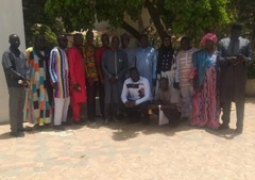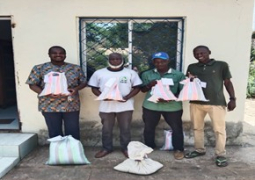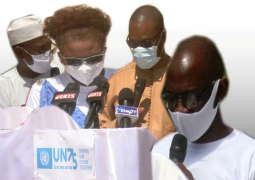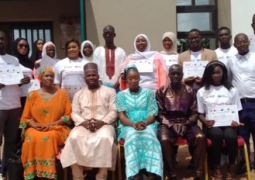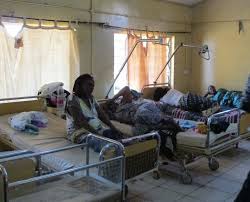
In a recent interview with this Point reporter, who recently travelled to the Central River Region settlement, some women voiced out concerns and the harsh realities they endured, questioning the need of having a healthcare system that is struggling to meet their needs.
According Aji Kanyi Touray, a mother and resident of the village, it is not uncommon for two to three women to share the same delivery room in Chamen.
“This overcrowding not only compromises the privacy and dignity of the mothers, but also raises significant health risks. Inadequate space and resources can lead to unsanitary conditions, which are detrimental to both maternal and neo-natal health.”
She indicated that mostly transporting women in labour to the clinic is a challenge of its own.
“So, we often have women giving birth on donkey carts before reaching the hospital due to lack of proper transportation and proximity of the area from a major hospital. Not only those the hospital lack proper medical equipment, but they also lack doctors. We only see nurses at the hospital even those ones here are limited. We mothers are tired of this unbearable condition.” she lamented.
Aji believed that sufficient resources were spent on building the hospital but she blames the contractors for the current state of the ward.
Another concerned mother and resident of the village, Hurrai Sowe, expressed similar situation, which she said, is complicated by frequent power outages that plague the village.
“On occasions, other mothers and I have experienced delivering our babies in complete darkness, relying on the faint glow of mobile phone lights to guide them through the process.”
The absence of electricity, she added, makes it nearly impossible for medical staff to provide the necessary care and monitoring during such critical moments.
“In some tragic instances, women have had to resort to delivering outside the hospital, exposing themselves and their newborns to dangerous conditions that can lead to severe complications.”
She added; “It is embarrassing sharing the same labor room with your fellow woman. This has been a thing I experienced and has discouraged me from giving birth again. I shared the same room delivery room with another woman who was also being delivered of her baby. This traumatized me a lot.”
Habbi Bah, a staff at the hospital, acknowledged that nurses are doing their best to ensure women deliver without any difficulty.
She, however, revealed that they are also faced with inadequate medical supplies for women during and after delivery.
“Sometimes if you have issues and transferred to other hospitals, you are asked to pay for fuel due to lack of resources to fuel the ambulance. If you do not have money for fuel this automatically means you are not going to be transported and this leads to frustration and other complications.”
Those issues, she went on, have created fear among women in the community and unsafe to be pregnant.”
She thus called on the government to address these issues as pregnant women deserve better and they don’t deserve to die in labor.
“These alarming accounts shed light on the urgent need for improvements in healthcare infrastructure in Chamen, Nianija. The local maternity ward is in desperate need of resources, including medical supplies, trained personnel, and reliable electricity. The women expressed their frustration and fear, emphasising that every mother deserves a safe and supportive environment to bring new life into the world.” she said.
As women of Nianija continue to voice their concerns, their stories serve as a powerful reminder of the importance of accessible and quality healthcare for all. However, the struggles they face are not just local issues, but one that reflects a broader challenge that many rural communities encounter on daily basis.


